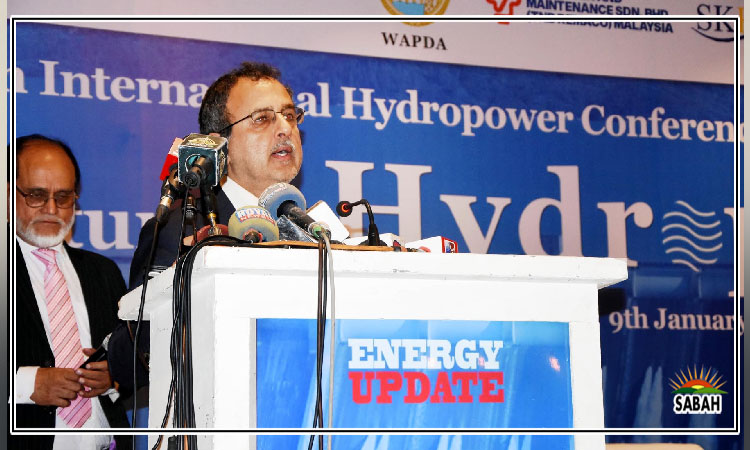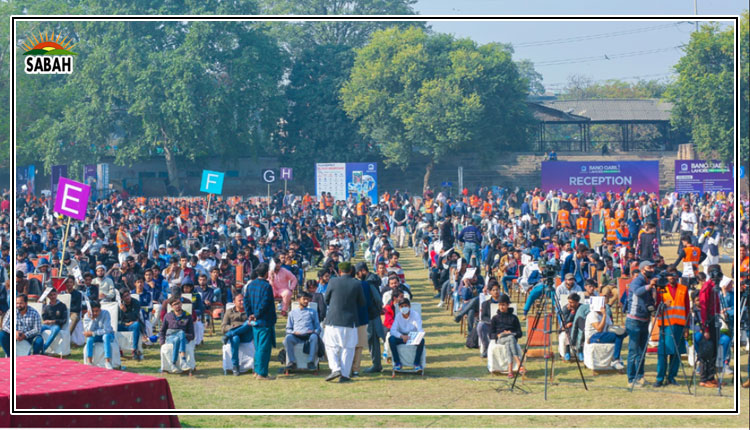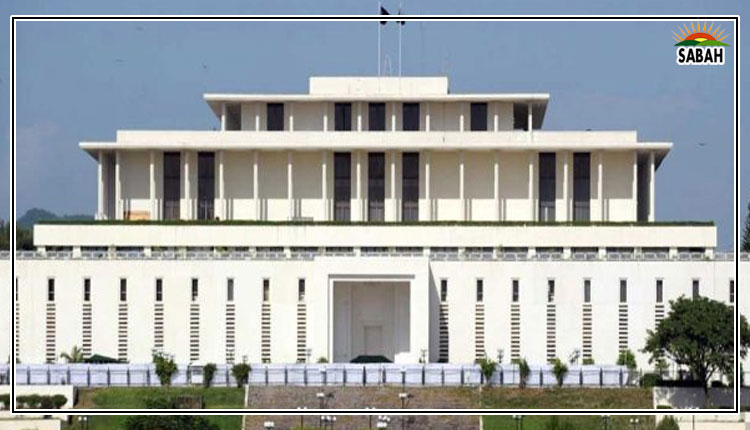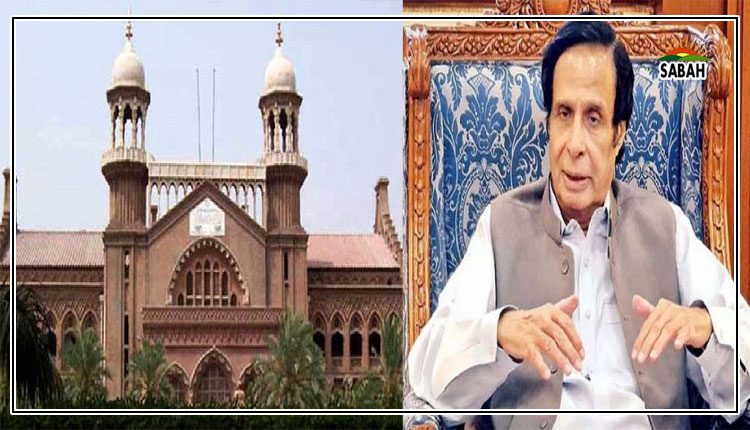LHC extends suspension of Punjab Governor Balighur Rehman’s order to denotify Chief Minister Parvez Elahi till tomorrow
LAHORE, Jan 11 (SABAH): The Lahore High Court (LHC) on Tuesday extended suspension of the Punjab Governor Engineer Mian Muhammad Balighur Rehman’s order to denotify Chief Minister Chauhdry Parvez Elahi for a day as hearing adjourned till tomorrow (Thursday).
A five-member larger bench headed by Justice Abid Aziz Sheikh and comprising Justice Chaudhry Muhammad Iqbal, Justice Muzammil Akhtar Shabir, Justice Tariq Saleem Sheikh and Justice Asim Hafeez heard the petition filed by Parvez Elahi against the denotification order.
At the outset of the hearing, Justice Abid Aziz Sheikh asked if the matter was still undecided.
Senator Barrister Syed Ali Zafar on behalf of Pervaiz Elahi, Nasr Ahmed on behalf of the federal government and Khalid Ishaq on behalf of Governor Punjab presented their arguments. Advocate General Punjab Ahmad Awais and the Additional Attorney General also represented the government in the case. In compliance with the parliamentary party on Tuesday, PML-N leaders including Federal Interior Minister Rana Sanaullah Khan, SAPM Attaullah Tarar Advocate, Rana Mashhood Ahmed Khan and Khalil Tahir Sandhu have also gathered at the court premises.
Parvez Elahi’s counsel Barrister Senator Syed Ali Zafar said all issues would be resolved in court.
The governor’s lawyer argued that the chief minister had sufficient time to secure the trust vote after the high court suspended the notification. He said taking no trust vote from the assembly during this period showed their bad intentions. He asked the court to fix a time period for the confidence vote.
Justice Abid Aziz Sheikh remarked that the governor had authority to ask the chief minister to get the vote of confidence. How much time is needed to get the trust vote, he questioned Syed Ali Zafar. He said the governor had offered to withdraw the notification if the chief minister takes the vote of confidence. The judge also offered to fix a date for the trust vote in the provincial assembly, adding that the bench would decide the case on merit if the issue was not resolved.
However, Barrister Syed Ali Zafar rejected the Governor’s offer, saying he wanted to submit his arguments in the case. He highlighted that Parvez Elahi’s re-election as chief minister five months ago showed his strength in the assembly.
Justice Asim Hafeez remarked that the chief minister had an opportunity to secure the trust vote after the case was adjourned last month. He added the chief minister should have confidence of 186 lawmakers all the time.
The court then asked Elahi’s lawyer if his counsel was accepting the offer for the vote of confidence or not. Barrister Zafar replied that they had rejected the offer.
Subsequently, Justice Abid Aziz Shaikh said that if a consensus could not be reached between the governor and the chief minister, then the case would be heard on “merit”.
“The matter has now gone beyond a reasonable time,” he remarked, adding that the court would have to look at the assembly dissolution, violation of the governor’s orders and the way forward. The hearing was put off for 30 minutes.
When the hearing resumed, Barrister Syed Ali Zafar started presenting his arguments in the case.
“If a majority of PTI’s Punjab lawmakers come to the governor and tell him that they have lost confidence in the CM, only then can a vote of confidence be called,” he said.
Zafar contended that the governor did not provide suitable reasons for the trust vote, adding that his client would have had no problem with the vote if a “legal and constitutional procedure” was adopted.
“If someone is trying to create a situation of instability [in the province], we will object to it,” he said, adding that five months back, Elahi had shown his majority in the PA.
He insisted that the Constitution only gave the chief minister the right to dissolve assemblies. “The CM sends an advisory to the governor and within 48 hours the assembly is dissolved.”
However, in this case, the governor instructed that a vote of confidence should be taken on Dec 19, Zafar pointed out. “His orders came after the opposition submitted a no-trust motion [against Elahi] in the PA.”
He further maintained that the entire “fiasco” was aimed at stopping the dissolution of the assembly.
“But what if the governor had directed to hold the confidence vote within 10 days,” Justice Shaikh asked here.
In his arguments, Zafar told the bench that when Governor Punjab removed the chief minister and the cabinet, the opposition took back the no-confidence motion. The counsel added that the Pakistan Tehreek-e-Insaf and PML-Q were ready for the motion.
“They are tying to play a political game. This is tantamount to fraud with the Constitution,” said Zafar.
Moving on, the lawyer agreed with the bench that a governor can ask a chief minister to take a vote of confidence but contested that it was the speaker’s prerogative to give a date for the vote.
“Even the chief minister cannot ask the speaker to take a vote of confidence,” said Zafar. He urged that the chief minister could not be punished for the speaker’s failure to summon a session.
At this point, Justice Hafeez intervened and remarked: “Under the constitution, the governor and speaker are unbiased. Over here the speaker and governor are acting as spokespersons of political parties.”
Furthermore, on Zafar’s contention over the speaker’s prerogative to determine a date of the vote, the court observed that the governor could determine a date of the vote of confidence during an ongoing session.
“If this cannot happen then the chief minister will say that he won’t be taking a vote of confidence as a session is ongoing,” observed Justice Sheikh. He added that the speaker could also give a separate date.
Upon the speaker’s mention, Punjab Assembly Speaker Sibtain Khan’s lawyer intervened and told the bench that his client had given a ruling on the issue.
However, Justice Sheikh told the lawyer that the court did not have the ruling and would hear the speaker’s point of view as well.
Moving on, Zafar told the court that his client had no issues with taking a vote of confidence but it was a matter of “principle”. At this point, the court adjourned the hearing till tomorrow (Thursday).












